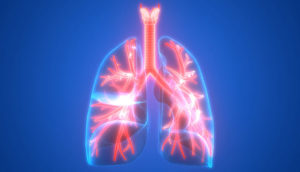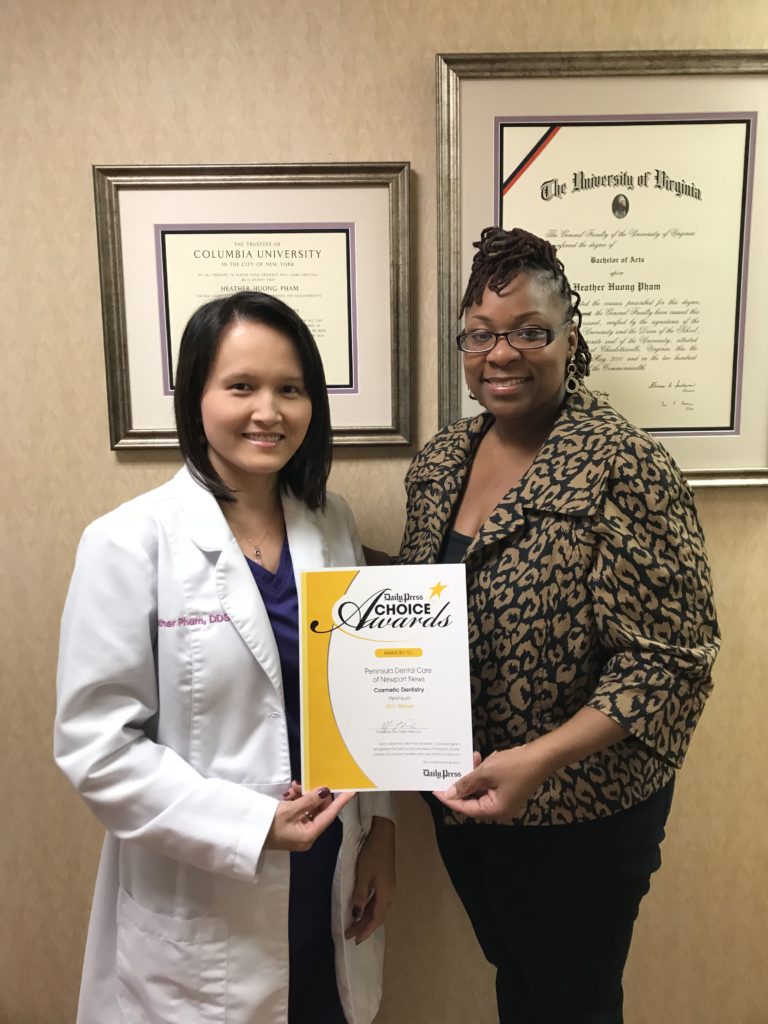
Newport News Dentist
12821 Jefferson Avenue
Newport News, VA 23608
(757) 874-7155

Experience the convenience of flexible hours, personalized care, and a wide range of services at our Newport News Dental office.
Our practice is designed around you.


 It is not uncommon for many of us to grab a bite to eat in a hurry. Americans have grown accustomed to bigger food portions at restaurants, but our mouths have not. Trying to fit that oversized sandwich or apple in your mouth might be worse for you than you have ever imagined. Below are some reasons why this could be detrimental for your oral health and what you can do about it.
It is not uncommon for many of us to grab a bite to eat in a hurry. Americans have grown accustomed to bigger food portions at restaurants, but our mouths have not. Trying to fit that oversized sandwich or apple in your mouth might be worse for you than you have ever imagined. Below are some reasons why this could be detrimental for your oral health and what you can do about it.
Why This Is a Problem
According to the Academy of General Dentistry (AGD), taking bites that are too big for you to chew can not only cause jaw and teeth issues, it can also cause digestive problems. Discomfort, swelling and difficulty eating may result from opening your jaw too wide. Taking large bites may also result in food not being chewed thoroughly, which can lead to weight gain and digestive issues.
Temporomandibular Joint Disorder (TMD)
Constantly opening your jaw too wide becomes an even larger problem for people with temporomandibular joint disorder (TMD). The temporomandibular joint connects the jaw to the skull bones enabling movement during chewing. People with TMD, usually have a restriction with how wide they can open their jaws. Taking large bites of food, especially hard foods like apples, can aggravate this condition making pain and jaw clicking worse.
What You Can Do
If you have food that is too large to chew or starts to cause jaw discomfort, try cutting your food into smaller portions. This makes food easier to eat with less hassle. Also consider eating softer foods that won’t harm your teeth or irritate your jaw.
Tip: Avoid chewing on ice, popcorn kernels, hard candies, and opening nuts with your teeth. This can lead to a chipped tooth!
Contact our team today to schedule an exam and cleaning.
 Individuals with severe gum disease or periodontitis, had increased risk for developing cancer compared with individuals with mild or no gum disease. In recent clinical studies, people with severe gum disease had more than double the risk for developing lung cancer and colon cancer.
Individuals with severe gum disease or periodontitis, had increased risk for developing cancer compared with individuals with mild or no gum disease. In recent clinical studies, people with severe gum disease had more than double the risk for developing lung cancer and colon cancer.
The authors of these studies noted a 24% higher risk for cancer. It is the low-grade inflammation and the released substance from bacteria called endotoxins that contribute to chronic diseases, including cancer, heart disease, and rheumatoid arthritis.
Patients without teeth, a sign of severe periodontitis, had a 28% increased risk for cancer. Severe periodontitis and edentulism appeared associated with a greater than twofold increased risk for lung cancer, even after adjusting for smoking status. For colorectal cancer, researchers observed an 80% significant increase in risk associated with edentulism.
Association between lung and colorectal cancer risk and periodontitis appeared similar among races. However, they were generally weaker among African Americans.
Researchers also observed a slight increase in risk for pancreatic cancer among patients with severe gum disease. But due to the limited number of cases, this association did not reach statistical significance. They found no association between breast, prostate, and lymphatic cancer risk and periodontitis.
For a comprehensive screening and treatment of gum disease, do not hesitate to give our office, Peninsula Dental Care, a call at 757-874-7155.
 Loose teeth, bad breath, and painful, bloody gums – these are among the signs and symptoms of periodontal, or gum, disease. Unfortunately, periodontal disease can also begin without any obvious symptoms. If left undiagnosed or untreated, you could be at risk for irreparable damage to your teeth and gums. The good news is that periodontal disease is preventable. In fact, one of the most effective tools for preventing the disease only takes a minute of your time each day.
Loose teeth, bad breath, and painful, bloody gums – these are among the signs and symptoms of periodontal, or gum, disease. Unfortunately, periodontal disease can also begin without any obvious symptoms. If left undiagnosed or untreated, you could be at risk for irreparable damage to your teeth and gums. The good news is that periodontal disease is preventable. In fact, one of the most effective tools for preventing the disease only takes a minute of your time each day.
Floss to the Rescue
Dental floss is an effective and easy to use tool that can be among your best defenses for preventing periodontal disease. Periodontal disease is caused by a buildup of plaque and bacteria. Even if your daily oral hygiene routine already includes a thorough brushing that lasts for two minutes, at least twice each day, you should be flossing daily as well. Dental floss is highly effective at cleaning areas where your toothbrush cannot reach. Small gaps and tight spaces between teeth catch food debris and sugars and acids from drinks all day long. Flossing helps to clean out these tough to reach spaces.
Facts Behind Flossing
According to a survey referenced by the American Dental Association, only 40% of Americans floss each day. The same study showed a clear link between regular intra-oral care and better oral health. Unfortunately, many people also lie about how frequently they clean between their teeth. A study from the American Academy of Periodontology found that 27% of adults lie to their dentist about their flossing habits.
Tips for Flossing Correctly
It can be confusing to figure out the best way to use dental floss. Try cutting off about 18 inches of floss and wrapping most of it carefully around your middle finger. Use roughly one inch to clean between each pair of teeth. Using your thumb and index finger, carefully slide the floss between your teeth. Floss to your gumline, but be gentle. Avoid cutting your gums. Work your way through your 18 inches of floss by using a new, clean section between each pair of adjacent teeth.
It only takes about a minute to floss your teeth each day, but these minutes contribute to a lifetime of optimal oral health. Floss is among the most effective tools at your disposal to keep your gums clean and healthy. Get into the habit of flossing your teeth regularly – your gums will thank you.
For more information about gum health, or to schedule a visit to our office, please contact our team.
 Determining Which Type of Denture is Best for You
Determining Which Type of Denture is Best for You
Dentures can either be a replacement of all of one’s teeth known as complete dentures or a section of teeth, known as partial dentures. When arriving for your scheduled appointment here is what you can expect. X-rays to look for any issues that might affect fit. In some cases, the addition of crowns, may be needed to accommodate the new partials. Once fitted, your dentist will recommend keeping them in for one week to make any necessary adjustments. Next, how you should care for them, why it is important to note any misconceptions, and any future questions you might have will go down here in this handy guide. Always consult your dental professional should you have any questions or concerns.
Fitting of Partial Dentures
Having been fitted with your partials, you will be ready to schedule a follow up appointment you’re your dental professional to make any adjustments and address any concerns you are having during this first week period. There will be different types of products available to you the consumer for taking care of your new partials, and that it is important to know what to expect when wearing and caring for them. Some of the commonly held misconceptions are listed below and are summarized from the ADA’s recommendations.
Misconceptions and how to Care for Them Below, is a look at some differences, and what you can expect when caring for your new partials. The many different types of products available to you over the counter and caring for them will change. Below, we can see how and what will be done different.
Whether you are deciding which type of dentures, either partial and full replacements, you should now have a basic understanding of what to expect with full or partial ones. Avoiding cleansers and brushes that will cause harm or damage and following the recommendation of your dental professional are crucial in making your new partials last a long time. To schedule your appointment, please contact our office below.

 It’s common knowledge that plenty of beverages are not good for your health. The excessive amounts of sugar, caffeine, or alcohol found in a lot of popular drinks have well-documented impacts on your body. However, you may not be aware of the immediate impacts that these beverages can have on your teeth. Below is a list of some common beverages and tips for enjoying them responsibly.
It’s common knowledge that plenty of beverages are not good for your health. The excessive amounts of sugar, caffeine, or alcohol found in a lot of popular drinks have well-documented impacts on your body. However, you may not be aware of the immediate impacts that these beverages can have on your teeth. Below is a list of some common beverages and tips for enjoying them responsibly.
Soda, Juice, and Energy Drinks
The high sugar content in these drinks can have a negative impact on your physical health. Less obvious however is the effects that they can have on your teeth. As with any sugary food, prolonged exposure can lead to the damage and decay of your enamel, opening the door for cavities and other issues to occur.
Coffee
Many popular coffee drinks contain just as much sugar as sodas and juices. However, even people who drink their coffee black run the risk of damaging their smile. Excessive coffee consumption can stain your teeth, though the amount of discoloration experienced varies from person to person.
Wine, Beer, and Liquor
Though it seems obvious that red wine can stain your teeth, all wines pose a similar risk of damage. Likewise, darker beers can gradually stain your teeth depending on the frequency of consumption. While hard liquors generally don’t pose as much of a risk to your enamel on their own, the mixers they’re often served with can.
How to Protect Your Teeth
After consuming one of these beverages, your first impulse might be to brush your teeth as soon as possible. However, rushing to brush could actually be doing more harm than good. All of the aforementioned beverages contain high levels of acid. This acid has a softening effect on your enamel, and the pressure applied during brushing can potentially further this softening. Instead, it’s recommended that you follow sugary or acidic drinks with water and wait 30 minutes to brush. It is also beneficial to swish the water around as you drink it, as this will help gently rinse off all of your teeth and allow the enamel to harden before you brush.
Watching your diet can benefit your teeth as much as it benefits the rest of your body. However, moderate consumption of any of these beverages won’t cause an issue provided you maintain a proper oral care routine that includes regular brushing and flossing, as well as professional cleanings at least twice a year. Contact our office today to schedule your next appointment!
 Do you have white spots on your teeth? Are your teeth quite sensitive? Do your teeth have cracks, chips, or indentations? If yes, then you may be experiencing enamel erosion.
Do you have white spots on your teeth? Are your teeth quite sensitive? Do your teeth have cracks, chips, or indentations? If yes, then you may be experiencing enamel erosion.
Tooth enamel is the hardest substance in the human body. It is the clear coating that protects your teeth. However, being the strongest substance in the body does not mean it should be neglected. Enamel can erode. Without the protection of enamel, you not only risk developing decay, but also abscesses, tooth pain, and even tooth loss.
What Causes Tooth Enamel Erosion?
There are several factors that cause tooth enamel to erode, some of which are the result of everyday actions. Sugars and acids can wear down enamel. If you regularly drink soft drinks or sugary fruit drinks, you may be damaging your teeth. To protect your teeth, limit your consumption of such drinks. Alcohol can also erode enamel, as well as a diet that is high in sugary or starchy foods. The bacteria in the mouth can transforms starches and sugars in foods such as bread into damaging acid.
Other factors include acid reflux, recurrent vomiting, gastrointestinal problems, genetically inherited conditions, grinding your teeth, even brushing too hard or not flossing properly. All of these impact the health of your enamel, and, ultimately, your teeth. Once the enamel is worn or chipped away, it cannot be replaced.
Keep the sweets from becoming everyday treats, replace white breads with whole grains, and try eating more cheese and yogurt to bolster the calcium in your saliva to keep the acids in check.
How Can Enamel Erosion Be Prevented?
In addition to exercising moderation with soft drinks, alcohol, sugars and starches, and, of course, taking extra care with regard to medical conditions and your tooth care regimen, there are a few extra things you can do to protect your smile. Saliva can neutralize harmful acids in your mouth. By drinking water and chewing sugar-free gum, you can boost saliva production.
Keep the sweets from becoming everyday treats and replace white breads with whole grains. Add more cheese and yogurt to your diet. Not only are both foods high in calcium, but they also help neutralize harmful acids in your mouth.
Tooth enamel is essential for maintaining a healthy smile. Be mindful of what you eat and drink. Enamel erosion may also be the consequence of other complications such as excessive teeth grinding or acid reflux. Regular visits to our office allow our team to provide a full examination. If we detect that your enamel is eroding, we will discuss potential causes and solutions.
To schedule your next visit to our office, please contact our team today.
 While brushing or flossing your teeth, do you notice blood on your toothbrush or in the sink? Swollen, red, or tender gums can bleed when brushing or flossing, even if you are brushing gently. While it may seem harmless, it is important that you do not ignore these symptoms as they may be signs of a more serious issue. Here are four reasons why your gums may be bleeding, and what you can do for prevention.
While brushing or flossing your teeth, do you notice blood on your toothbrush or in the sink? Swollen, red, or tender gums can bleed when brushing or flossing, even if you are brushing gently. While it may seem harmless, it is important that you do not ignore these symptoms as they may be signs of a more serious issue. Here are four reasons why your gums may be bleeding, and what you can do for prevention.
Brushing your teeth at least twice a day and flossing daily is recommended. However, this routine might still cause your gums to bleed. Bleeding gums can be a consequence of flossing too hard. Use soft bristle toothbrushes for a gentler cleaning.
Inhaling smoke can leave toxins on the teeth that irritate gums and cause them to bleed. Smoking can cause your immune system to be compromised, and prevent tissues from healing correctly. Quitting cigarette use will reduce bleeding gums. If you smoke, be sure to schedule an extra oral examination with our team to evaluate your gum health.
A healthy lifestyle is beneficial to every aspect of your health. Eating junk food high in sugar content can cause decay and lead to poor oral health. A balanced diet and proper oral hygiene can reduce the risk of bleeding gums.
Plaque and bacteria can build up on your teeth and become inflamed. Gingivitis is often symptom free. The one symptom that typically appears is bleeding gums, which is usually ignored because it is generally painless. Gingivitis is preventable by brushing your teeth at least twice a day, and flossing regularly to reduce plaque build-up. Schedule an appointment with us today if you suspect you have gingivitis.
If your gums regularly bleed, it is important that you contact our office. Our team can provide a complete oral examination and recommend proper treatment. Your oral health can significantly impact your overall health. For a healthy life, start by maintaining healthy gums.
To schedule your visit, please contact our office today.
12821 Jefferson Ave.
Newport News, VA 23608
(757) 874-7155
 Is anxiety or nervousness preventing you from visiting our team? Dental treatments should not be a cause of stress. If you worry about pain, embarrassment, or loss or control during a dental examination, we want you to know two very important things: You are not alone and We can help.
Is anxiety or nervousness preventing you from visiting our team? Dental treatments should not be a cause of stress. If you worry about pain, embarrassment, or loss or control during a dental examination, we want you to know two very important things: You are not alone and We can help.
Dental Anxiety Is Common
Research has shown that most patients experience some degree of anxiety when visiting the dentist. Between 10 and 20% of the general population encounters such a high level of stress and nervousness that they ignore oral healthcare altogether. This can increase the risk of developing severe oral health complications, requiring additional care.
In many cases, dental anxiety has two main causes. First, patients may have had a negative experience in the past, leaving them apprehensive towards their next appointment. Second, is through influence. This is particularly true for children. Children learn through imitation and are influenced by their parents. If you dread going to the dentist, your child may pick up on the behavior and develop similar fears.
Our Team Can Help
The first action you can take is to let our team know about your feelings of nervousness and anxiety. We have a number of techniques to help you feel more comfortable and relaxed. Our compassionate team is always open to discussing your options with you.
We will consult you regarding what your visit will entail, and work together to find a comfortable pace at which you feel comfortable.
If nervousness, stress, fear, or anxiety have caused you to skip appointments or avoid dental care completely, please contact our team. Dentistry is constantly evolving by offering new technology and treatment methods with patient safety and comfort in mind. Talk to our team about your fears or concerns and allow us to work with you. Ignoring your oral health can have serious repercussions and lead to more necessary treatments.
Contact our team to schedule your visit today.
12821 Jefferson Avenue
Newport News, VA 23608
(757) 874-7155
Copyright 2025 • Peninsula Dental Care, PLLC